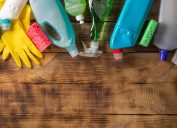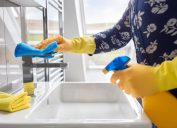If You're Using Any of These "Unsafe" Cleaning Products, Stop Now, FDA Warns
A total of eight products can cause serious injuries.
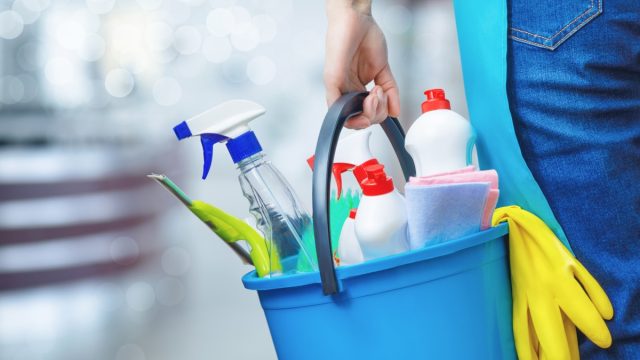
Thanks to the COVID-19 pandemic, most of us have a newfound appreciation for keeping our homes and our possessions clean and sanitized. If you were a self-proclaimed "clean freak" before 2020, you likely have a regimen for keeping things spotless, and it's probably gotten even more intense since then. But some cleaning devices actually do more harm than good: The U.S. Food and Drug Administration (FDA) just issued a warning about cleaning products that are "unsafe" to use. Read on to find out what the agency says you should stop using immediately.
READ THIS NEXT: Never Take This Popular OTC Drug for Longer Than 2 Days, FDA Warns.
The FDA sends out safety communications throughout the year.
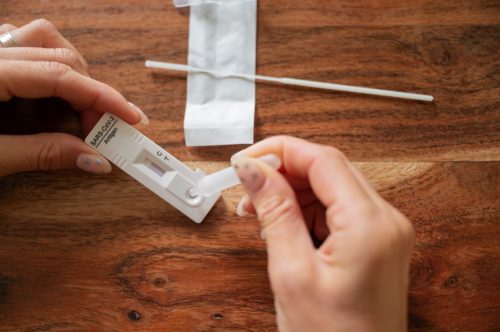
Over the course of 2022, the FDA has issued several safety communications about a range of products. Previous warnings have instructed customers to be wary of certain unauthorized COVID-19 antigen tests, as well as baby neck floats used for water therapy interventions, which can put infants' lives at risk. In April, the FDA also cautioned expectant parents about using non-invasive prenatal screening (NIPS) tests, which have certain limitations and haven't been properly reviewed by the FDA.
Now, the agency is asking consumers to avoid one variety of cleaning products due to health risks.
Avoid using this tool for disinfection.
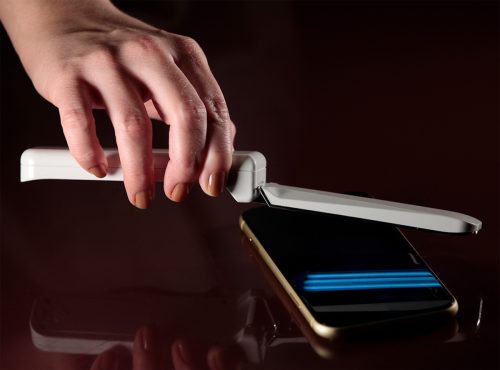
Modern cleaning products are intended to make our lives easier—vacuums are more powerful, cleaning sprays are more eco-conscious, and new mops use less water. But some handheld ultraviolet (UV) wands—used to disinfect surfaces by giving off UV-C radiation—are dangerous for you to use, the FDA warned on July 20.
"The FDA is aware that some manufacturers are marketing unsafe UV wands to consumers to disinfect surfaces and kill germs in the home or similar spaces outside most health care settings," the agency wrote in the safety communication notice, then went on to name seven manufacturers and eight affected products.
The "unsafe" products include Safe T Lite from Max-lux Corporation; OffLite Rechargeable UVC Disinfecting Wand, model: UV10002M from OttLite Technologies Inc.; UVILIZER Flip, model: SG-153 from In My Bathroom LLC; Portable UV Light Wand Sterilizer from In My Bathroom LLC; Ultraviolet Sterilamp PURPLEGLOW from Vanelc; Sharper Image UV Sanitizing Portable Wand, model: 101362 from MerchSource LLC; SurfaceSoap UV from PhonoSoap LLC; and Magic UV Light SanitizerTM from Magic UV Light Sanitizer.
RELATED: For more up-to-date information, sign up for our daily newsletter.
These wands can injure your skin and eyes.

According to the FDA, these UV wands can expose you to unsafe levels of radiation and injure your skin or eyes within a few seconds of using them. These products don't provide adequate safety information or means to protect users, also claiming that wands can clean a surface in a matter of seconds.
"When a product is advertised to disinfect in seconds, it likely means that it gives off an unsafe level of UV-C radiation," the agency stated. "The FDA testing determined that some UV wand products give off at a distance of about two inches, as much as 3,000 times more UV-C radiation than the exposure limit recommended by the International Commission on Non-Ionizing Radiation Protection."
This puts the user, as well as anyone else close to the UV wands, in danger of a "burn-like skin reaction" called erythema, as well as photokeratitis, a painful injury that is similar to the feeling of having sand in your eyes, the FDA said.
Consider taking another cleaning approach.
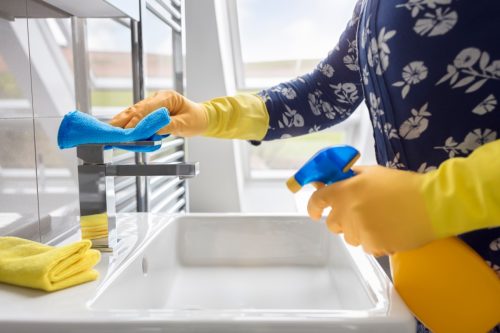
Following testing, the FDA issued Notification of Defect Letters to the manufacturers and plans to work with companies "to ensure adequate corrective actions."
The agency asks that you do not use any of the UV wands listed in the safety communication, and be aware of the serious injury that they can cause. Also avoid using other wands that lack proper safety instructions or information on the amount of radiation you're exposed to.
And when it comes to cleaning your home, you might want to take a different approach entirely, as the FDA recommends choosing "safer alternative methods" like chemical cleaners.
If you experienced a "radiation incident or potentially hazardous event," you can fill out and submit an Accidental Radiation Occurrence Report. You can also submit information about additional UV wands that may be unsafe via the Allegations of Regulatory Misconduct Form.
